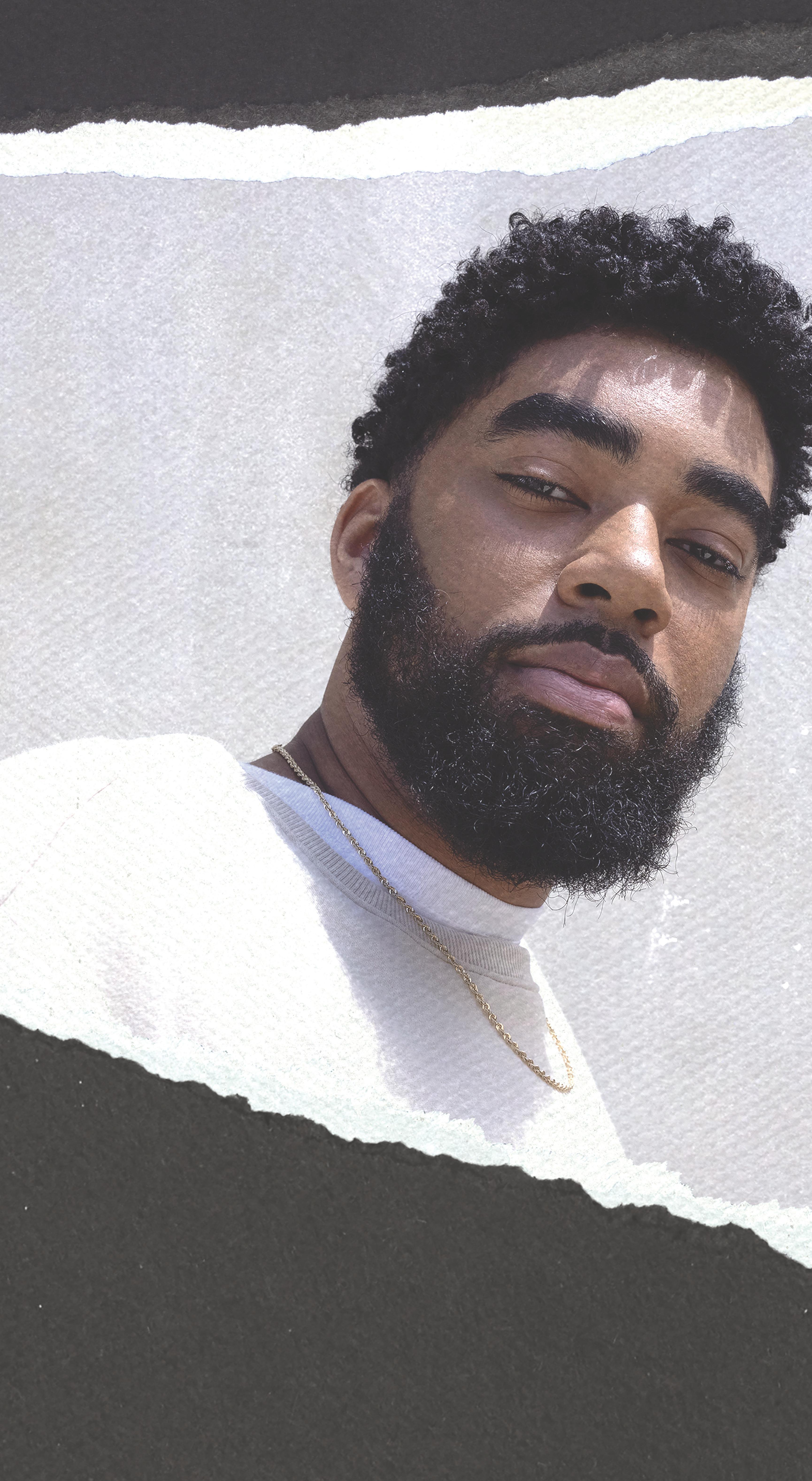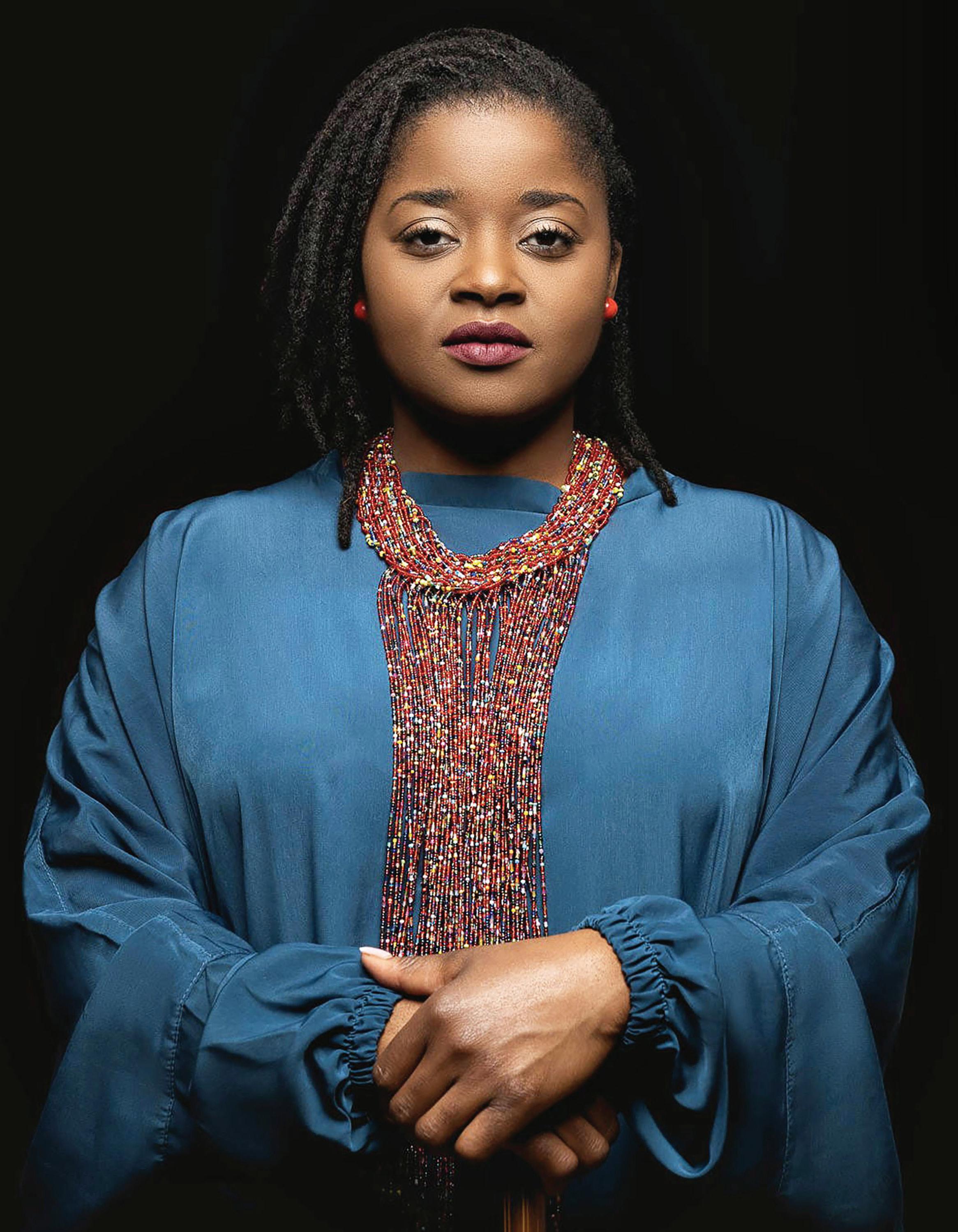

Interview: Naxx Bitota and husband
Lionel on the making of modern mutuashi
By Ron Deutsch Afropop
Afropop’s Ron Deutsch over the summer in between the Montreal International Jazz Festival and Montreal's Nuits d'Afrique Festival interviewed Democratic Republic of Congo born but Montreal-based Naxx Bitota and husband, Lionel Katshingu. It is rare for an artist to be booked for both festivals in the same year.
Their genre, Afropop Mutuashi, is a blend of Congolese rumba, reggae, mutuashi, Afropop, and lively soukous seben rhythms.
Ron Deutsch: So I guess my first question is, do you think the frites are better here in Montreal or in Belgium?
Naxx Bitota: [LAUGING] I think for the frites, Belgium and for the waffles also... and maybe for the chocolate also.
I read how when you were very young you had already set your sights on becoming a professional singer.
Naxx: Yes. Because I come from a family that likes to sing. They like to sing a lot. So it's like an obligation to sing.
Were you singing professionally then or just for fun all the time?
Naxx: No, no, no, no. Just for fun.
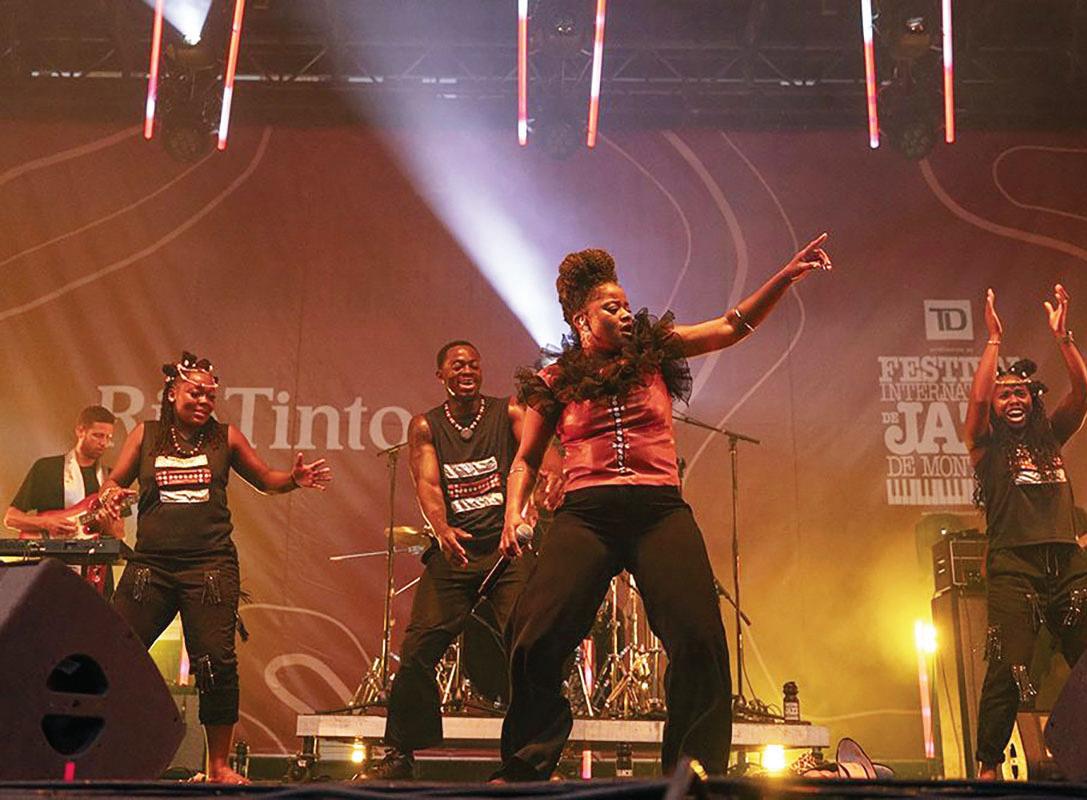
I developed this love for singing and I was thinking to make that a professional career. All my brothers and my sisters, we all sing, but I'm the only one who
made it a profession. My parents were not surprised about this because I was talking about it since I was a kid. I knew I would travel around the world

and would sing around the world. But
Afropop Mutuashi Cont’d on Pg. 6
Naxx Bitota performs at the Montreal International Jazz Festival. Photo: Frédérique Ménard-Aubin/Via Afropop
Guest Commentary by A. Scott Bolden
Trump wrong to federalize policing in Washington, DC
Black people make up the largest racial group in Washington — about 43 percent — and the city’s mayor, police chief and non-voting delegate to the U.S. House of Representatives are all Black. The president seems to believe they are incapable of fighting crime.
Trump falsely claimed in an Aug. 11 news conference that D.C. “has been overtaken by violent gangs and bloodthirsty criminals, roving mobs of wild youth, drugged out maniacs and homeless people.” Not coincidentally, Trump used his news conference to also attack other cities run by Black mayors: Baltimore, Chicago, Los Angeles, New York and Oakland.
I’ve lived in Washington for decades. It is a beautiful city, drawing visitors for safe and enjoyable trips from around the world — not the nightmarish hellhole Trump described. We have some of the world’s finest museums, monuments, parks, neighborhoods, and public spaces.
Trump notably failed to mention that crime in Washington fell 35 percent to its lowest level in 30 years in 202,4, and violent crime has plummeted an additional 26 percent so far this year. Some people may not feel safe in Washington, but the significant drop in crime in the capital city hardly qualifies as the “public safety emergency” Trump said existed.
Alarmingly, Trump said that under his orders, police “are allowed to do whatever the hell they want.” What does that mean?
Does the president claim police can violate the constitutional rights of anyone and break any laws they want in their zeal to somehow reduce crime? Is he giving himself the power to allow police to beat or even kill suspected criminals without accountability? Under Trump’s order, will we see more Black people murdered by police, as George Floyd was in Minneapolis in 2020?
Trump has no power to violate the Constitution and laws, no matter how much he wishes he did.
The president’s action overriding the powers of the local government in D.C. constitutes a brazen power grab and a desperate publicity stunt designed to distract attention from his years-long friendship with convicted sex offender Jeffrey Epstein. He also wants to portray himself falsely — the first convicted felon to serve as president — as a tough-on-crime supporter of police.
The truth is that Trump is the best friend criminals have — as long as they break the law in support of him. He proved this by pardoning about 1,500 people — most of them white — accused or already convicted of crimes in the Jan. 6, 2021, Capitol riot that was designed to keep him in power after he was defeated in the 2020 presidential election. Rioters violently attacked and injured about 140 police officers, including five officers who later died.
Washington already has more police officers per capita than any state or large U.S. city.
Turning over the police department to federal officials without local knowledge and no handson policing experience — assisted by National Guardsmen without law enforcement training — won’t improve the police department’s performance. It will make things worse.
A better way to help D.C. strengthen its police department would be for the U.S. House to approve legislation allowing the city government to spend $1 billion of its local tax dollars on police and other programs this year. Unfortunately, the Republican-controlled House has failed to approve legislation to do this by correcting a mistake in a federal spending bill.
Reducing crime requires more than putting police on the streets and making arrests. It requires a series of policies to prevent crimes, not just respond to them.
More federal funding for private-public partnerships with local businesses and houses of worship can create alternative paths for young people to help them stay out of trouble, graduate from high school, and go on to job training, college, or careers. Programs like these are far cheaper than tracking down and imprisoning criminals, and are more effective at protecting public safety.
Mayor Muriel Bowser said the federal government could do more to reduce crime if it funded more prosecutors in the district and filled the 15 vacancies on the D.C. Superior Court, including some that have gone unfilled for years.
Because the District of Columbia is not a state, the president and Congress have greater power to exercise control than they do over the 50 states. Trump recently said he has asked lawyers to study congressional repeal of the 1973 D.C. Home Rule Act, which gave residents of the capital limited self-government and the right to elect a mayor and city council. Before the act’s passage, the president appointed commissioners who ran local government like colonial overseers.
Increased federal control of Washington is the exact opposite course the president should follow. Rather than denouncing and demonizing city officials as adversaries and falsely portraying Washington, he ought to work with city leaders as allies to reduce crime, homelessness, and other problems that affect all big cities.
The 700,000 residents of the capital are as entitled to self-government as other Americans are and will hopefully eventually achieve statehood. We do not need to be occupied by the National Guard and a federalized police force as if we were an enemy nation conquered in war.
Having the federal government increase its control of D.C. local affairs is a mistake that the president should reconsider, and Congress should halt if he refuses.
A. Scott Bolden is an attorney, NewsNation contributor, former chair of the Washington, D.C. Democratic Party and a former New York state prosecutor.
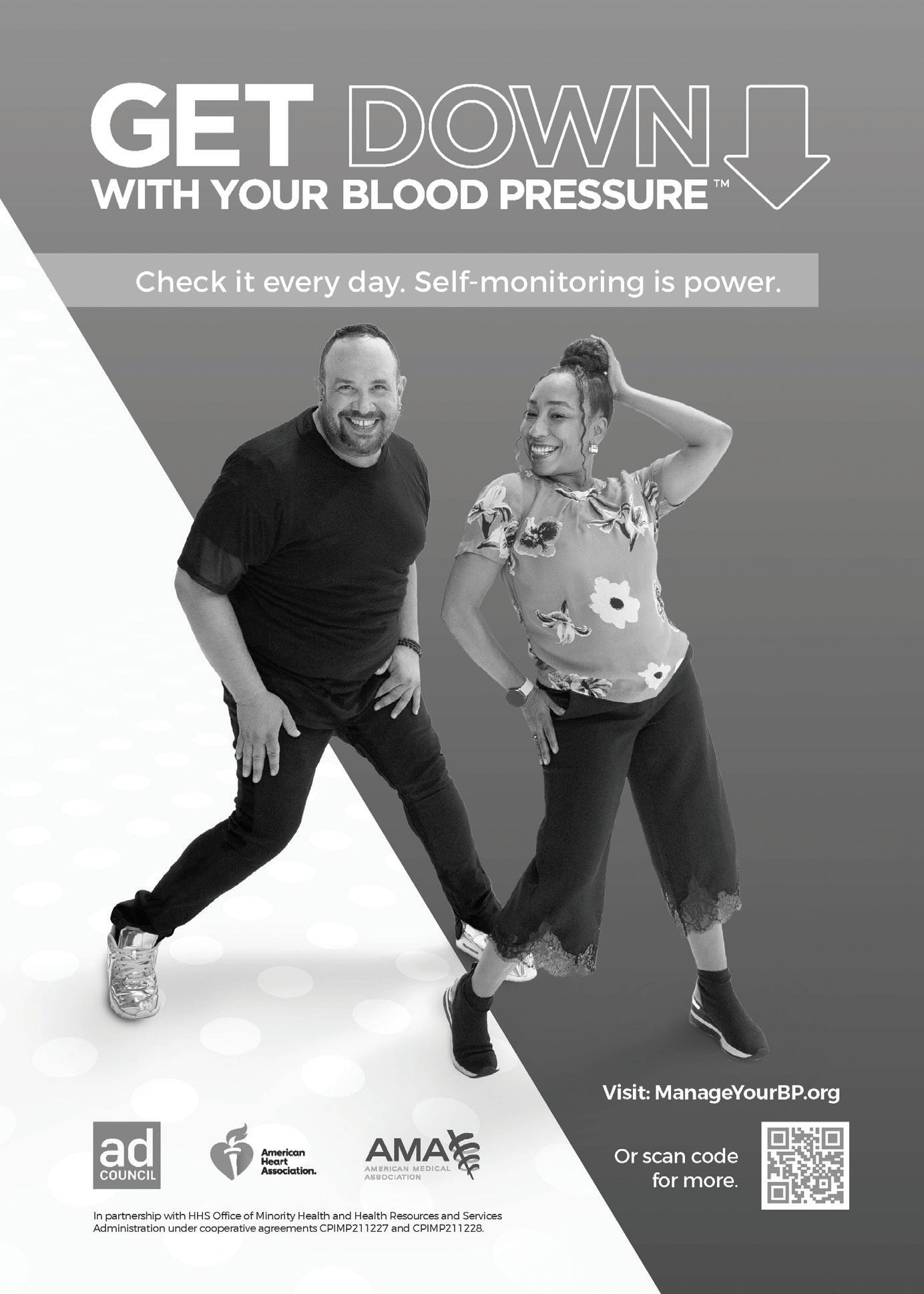
Covid hits Black Americans harder. New vaccine limits increase the risk
By Brandon Tensley Capital B News
Upheaval at the country’s top public health agency has left millions of Americans uncertain about access to the updated COVID-19 vaccines at a moment when rising case numbers threaten to disproportionately harm Black Americans.
The U.S. Food and Drug Administration approved the new shots in August. But it narrowed eligibility to people who are 65 and older and younger people who are considered to be at higher risk of contracting a severe COVID-19 infection.
The new guidelines are a departure from previous years when nearly everyone could get the vaccines. The changes come as Florida is on track to become the first state to eliminate vaccine mandates for children. In a Sept. 3 speech, the state surgeon general, Joseph Ladapo, said that “every last” requirement “is wrong and drips with disdain and slavery.”
It’s still not entirely clear who will be able to get the updated shots, whether the shots will be covered by insurance, and which pharmacy chains might carry the vaccines, as the Centers for Disease Control and Prevention faces disorder under the leadership of Health and Human Services Secretary Robert F. Kennedy Jr.
Kennedy, who’s connected to an anti-vaccine advocacy group, is facing calls to resign following his firing of the CDC director, refusal to be briefed by scientists on COVID-19 and other diseases, and efforts to gut the agency charged with promoting public health.
He was on Capitol Hill on Sept.4 testifying before a Senate committee about the Trump administration’s health care agenda.
U.S. Sen. Ron Wyden, a Democrat from Oregon, said that Kennedy has “elevated conspiracy theories, crackpots, and grifters.” U.S. Sen. Bill Cassidy, a Republican from Louisiana, said that it “surprises him” that
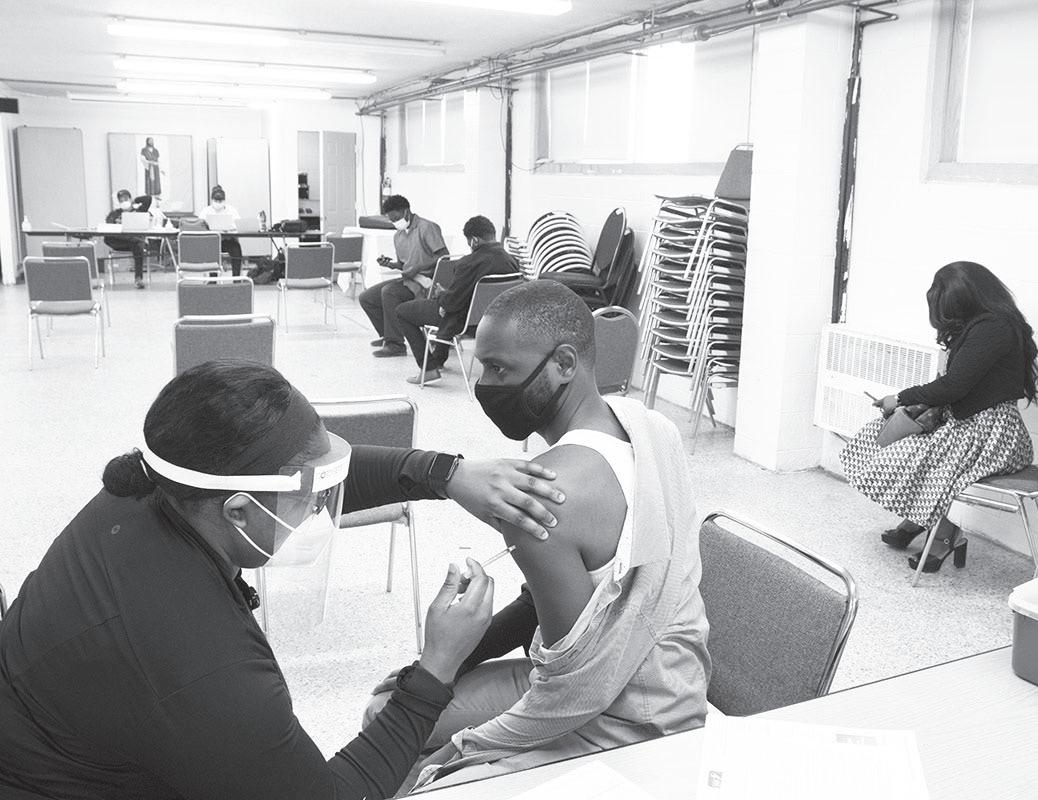
Kennedy thinks highly of Operation Warp Speed — an effort initiated by the U.S. government to distribute COVID19 vaccines — when, as an attorney, Kennedy “attempted to restrict access.”
On Sept. 3, Democratic governors in California, Oregon, and Washington announced their plan for creating a health care alliance that will protect vaccine access by establishing its own immunization guidelines that will adhere to “respected national medical organizations.”
The CDC’s Advisory Committee on Immunization Practices is scheduled to meet for two days beginning on Sept. 18 and is expected to discuss the COVID-19 vaccines, among other agenda items.
In the past, Americans have been able to get the vaccine free of charge after the committee recommended the shots. But this summer, Kennedy forced out every member of the committee and replaced them with people who have criticized vaccines and spread misinformation about immunization, raising concerns from scientists and medical professionals about the future of COVID-19 shots.
The ramifications could be particularly harmful to Black communities that already face inequities when it comes to health care, advocates say.
“Limiting booster eligibility risks further compromising the already fragile health status of many Black Americans,” Oni Blackstock, a physician and founder
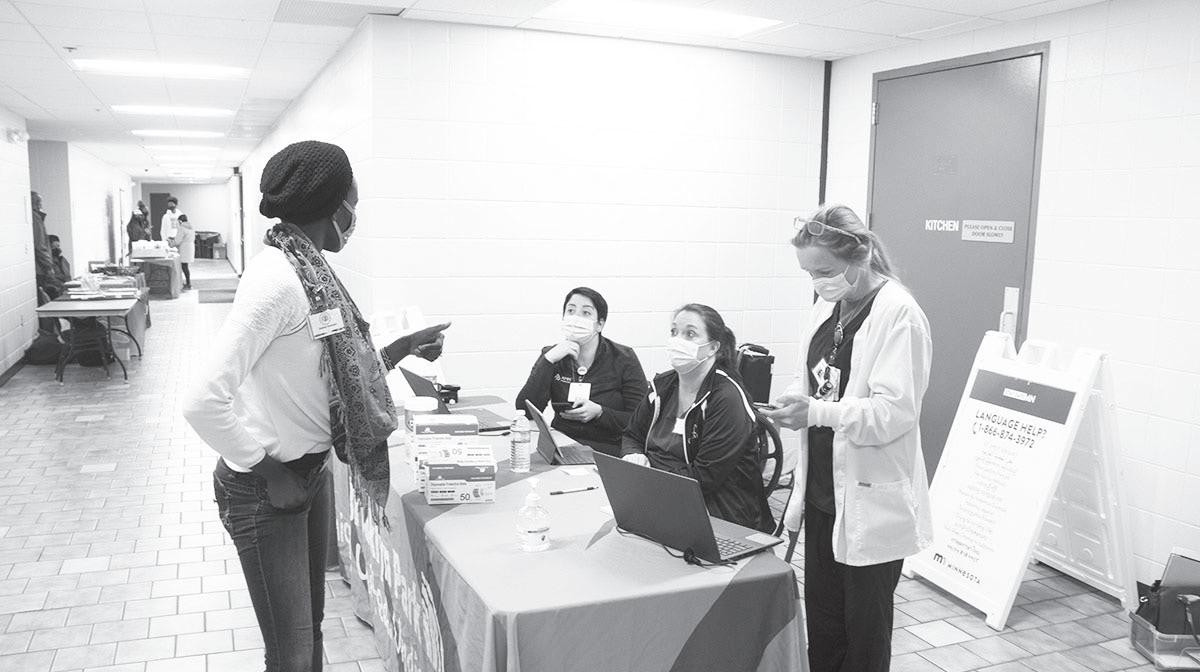
of Health Justice, a consulting firm that focuses on racial and health equity, previously told Capital B.
Black Americans are at least 1.5 times more likely to contract COVID-19 and four times more likely to be hospitalized, according to early pandemic data. Additionally, the Center for Primary Care at Harvard Medical School found that Black children are more than five times as likely to die from the virus.
“When [systemic barriers to health care access] combine with more restrictive vaccine guidelines,” Blackstock said, “it becomes even harder for Black Americans to get boosters and worsens existing health disparities.”
Here’s what to know about the updated COVID-19 shots.
Which COVID-19 vaccines are available this year?
The FDA has approved Moderna for those who are 6 months and older, Pfizer for those who are 5 years old and older, and Novavax for those who are 12 years old and older. Am I eligible to get the vaccine?
The updated shots have been approved for people considered to be at higher risk of contracting a severe COVID-19 infection.
Some of the underlying conditions that meet these new vaccine guidelines, according to a February list from CDC, include asthma, diabetes
M Health Fairview nurse Palisa Panton administers the Pfizer-BioNTech dose on Pastor Ezra Kenyanya, the youth pastor at the Kenyan Community Church located in Brooklyn Center, Minnesota when the church hosted a coronavirus vaccination mobile clinic on Sunday, April 25, 2021. Recent guideline changes could make it more difficult for people to get the vaccine this year.
Mshale Staff
Photo by Tom Gitaa
Nurses from the Minnesota Department of Health at the check-in and registration table during a COVID-19 vaccination pop-up clinic at the Brooklyn Park Community Center in 2021. Mshale Staff Photo by Tom Gitaa
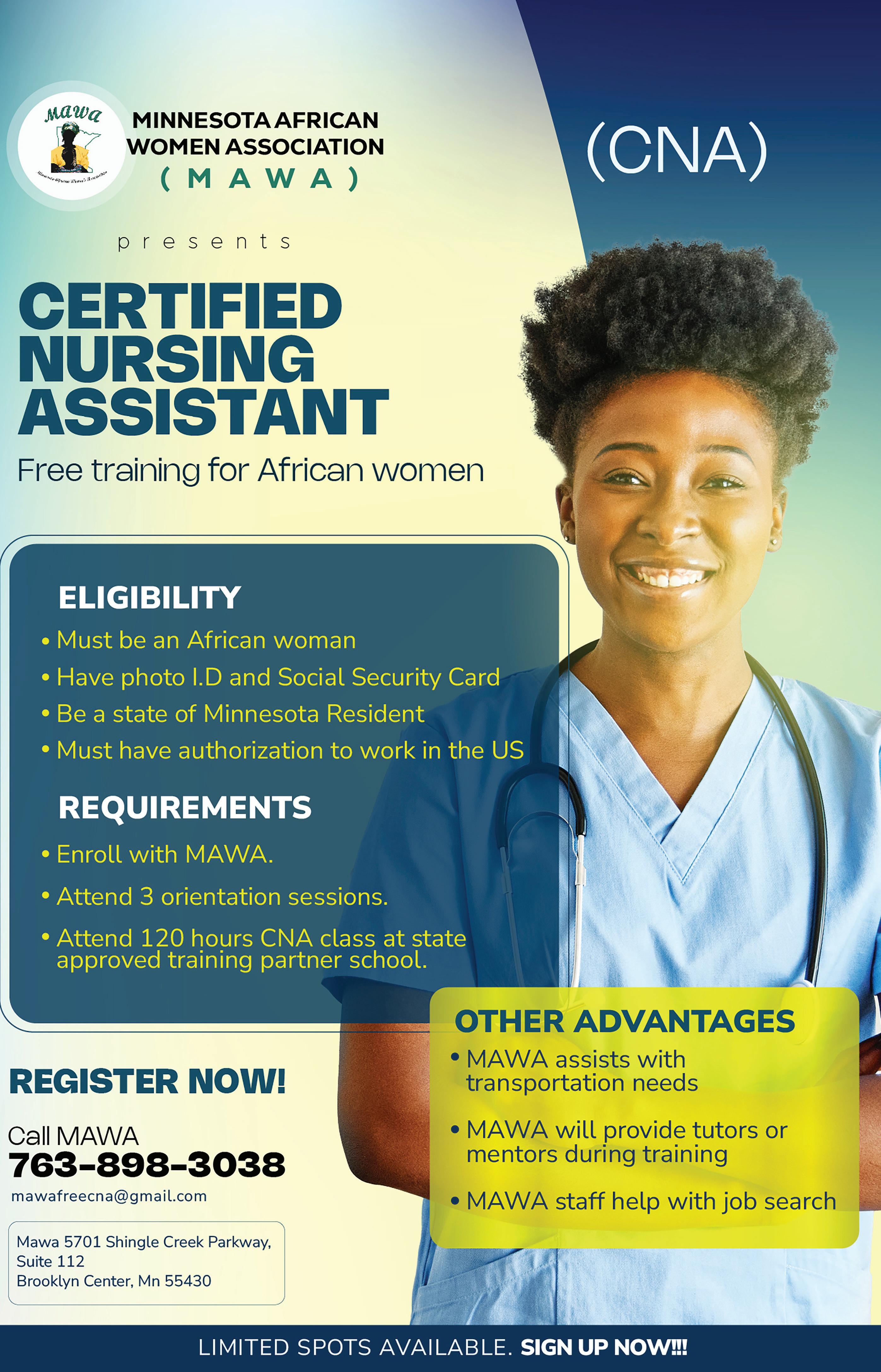
they gave me one condition: You have to finish university and then you can make your music the way you want. So when I was a kid I spent my time in the choir doing classical music, opera. I also did theater, but not my own thing. When I was wondering what kind of rhythm I'm going to use for my career, for me, it was mutuashi. The rhythm, it just speaks to me.
What was it about mutuashi that attracted you? And please talk about Tshala Muana. the “Queen of Mutuashi.” You did a tribute show to her at one point.
Naxx: So yes, I was interested in her since I was a kid because she's like a local hero. And yes, I did a tribute to Tshala Muana when she died in 2022. She was the one who made mutuashi popular and brought it to the world. Now first of all, mutuashi is a kind of dance and of singing. And being originally from Kasai, as Tshala Muana was, I'm only trying to do my part. It's a very special, traditional music that comes only from Kasai.
Did you ever get to see her?
Naxx: Of course. When we were kids, my mother was listening to Tshala Muana. And I was liking her music and dreaming to be like her. But I only saw her one time, and it was so fast, because I was so young. And my family told me that I could not stay to see the whole show, but they let me see, like, three minutes of seeing her dancing on stage.
She got into a lot of trouble dancing mutuashi at the time, yes? It was considered a little bit maybe too sexual for the public at the time.
Naxx: The dance especially; you move with the waist. When you see the dance it's a little bit sexual – and some artists can transform that – but it's still a traditional dance, because it means we are hoping for fertility. So some people could see it as a sexual dance, but it's not. We have to continue to multiply people for our culture not to die. So it's not sexual, though some people can use it in that way. But for me it's still very traditional.
You tie some kind of scarf around your waist...
Naxx: Yes, it's a kind of fabric with African prints on it that we put around the waist.
But you're not wearing it all the time. It's there on the stage and then you pick it up when you're going to do the dance.
Naxx: Yes, only for that. Because on stage, sometimes I also do like a Congolese rumba dance, so I don't need it for that kind of music. But for mutuashi, I need to have it. Because it's the way. I have to respect the traditional way... And also, I like it! I put some reggae in the mix also, because, I call my music “a new mutuashi.” It's a modern mutuashi, so I can make a crossover with reggae. If you listen to the new album, you have the song “'64.” It's very classic mutuashi. And near the end of the album, you also have “Mukalenga Mukaji,” and that's a fusion of reggae and Mutuashi.
One thing that's very interesting
to me – and you've spoken about this – is that when one sees you live on stage, you feel the music is the background to the dancing. But when listening to your album, there is no visual, so the focus is on the music. So, as you've said like, the album is about ears, and on stage it's about eyes.
Naxx: You know there's this thing – bi-polar – and I am that person. [LAUGHS] With all my songs, I can play in a theater where people are sitting and just listening. And I can also play like you saw at the Jazz Festival, to make people dance. For the same song, I have a version where I can be so quiet, so smooth, you can close your eyes and just listen to the music. But also the same song, you can have at festivals where you can't close your eyes. You have to move. I think just like my personality, the same song can be groovy or peaceful. It's all depending on how I feel and also the audience. So when I am in a quiet
Lionel I want this kind of music, all my crazy moods for this and that. And then he's going make music. So yeah, it's a nice partnership.
Lionel: Exactly. Like '64, it's her album. '64 is herself. So she explains that she wants a song with a rhythm of this region of Congo, and that she wants to express this kind of emotion. And just with that, I can create something. And when she's ready to have the lyrics, she puts them on the music, and if there's something that she wants to say or needs the music to move a certain way, we work together to have the music really be in place with the singing.
And the lyrics are all in Lingala?
I sing Lingala, in Tshiluba – which is the language from Kasai. Also, Swahili, a little bit of Kikongo, and some French and English also.
Talk to me about the seben. Can you explain to me what that is?
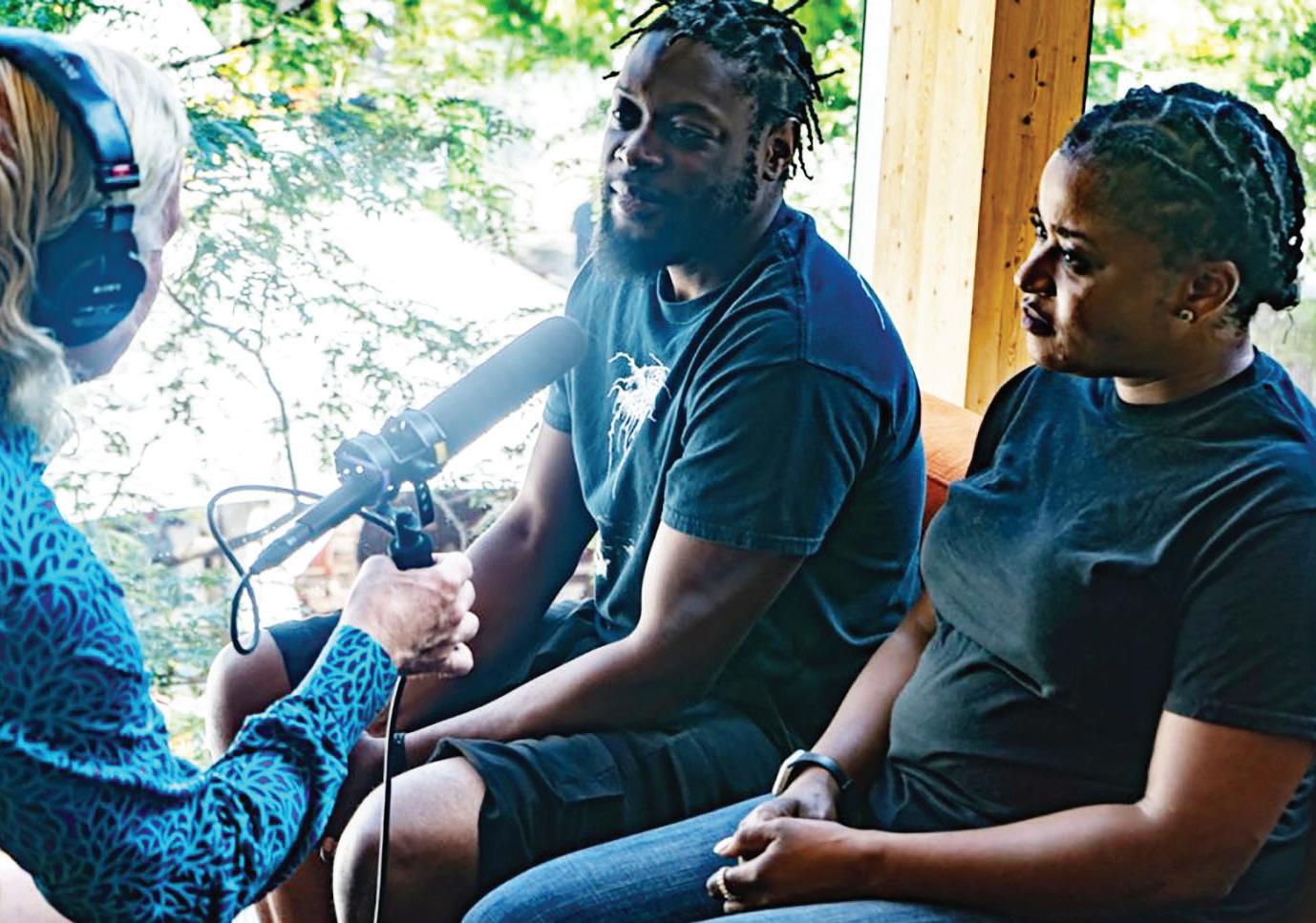
theater, I'm a quiet girl. And when I am in a festival and people are getting crazy, I'm going to be crazy also.
Lionel, you're also involved in this, you play bass and are also the musical arranger. Do you also compose some of the songs?
Lionel Katshingu: I arrange and compose all the music, but all the lyrics are Naxx's.
How do you navigate Naxx's quiet versus crazy sides when creating the music then?
Lionel: She said it very, very well. But for me it's not really that on stage I want to move the people, I want the people to be moved by something. It can be like for the dancing, but it can also be moved through the feelings. So it depends on the venue, as she said. It depends on how we feel, but also what we want people in front of us to feel. So that's why we have so many styles of playing the same songs, because those same songs have a thematic that can get you angry or get you sad or even give you ideas to be a better person, you know? So that's how we juggle around it.
And when you guys create together, do you write the music first and then Naxx writes lyrics, or does Naxx comes with lyrics then gives it to you? How do you guys work together?
Naxx: I think I come and tell
Lionel: The origin of the name is unsure. But what we understand is that some Congolese people were playing with some people that were speaking English and they were saying “go to the 7th,” but the Congolese understood “seben.” This is since the ‘60s.
It's not at all linked with the seventh chord actually, it's really just a name that has been coined and stayed throughout the years. But what we call seben is actually a kind of galloping rhythm within a rumba for dancing. But it has become a style of its own. So it was just kind of like rumba first, but then it began to take up a lot more space and there's been songs only doing the seben.
And what is the significance of this number 64. It's the name of the album and a song on the album.
Naxx: [LAUGHS] Okay, so it's my name. So, yes, my name is Bituta Mulumba. And when we were young, my brother gave me the nickname “Naxx.” It just comes from because I was given another name that I don't like which was Alexandra. I call it my slave name. I don't like it because it doesn't represent myself. But then my friends from school gave me the nickname “64” because I was the first one who had a Nintendo 64. So then they all called me “Naxx 64.”
Do you still have a Nintendo 64?
Naxx: Yes! I have it. I love GoldenEye and Mario Kart. They both take the first
place and then Mortal Kombat is second.
But the song "'64" is not about Nintendo.
Naxx: [LAUGHS] No, it's not about Nintendo... but it's about the real me. Yes, me and all my emotions. When I am strong and when I am weak, it's talking about that. But no, the Nintendo people didn't pay me for that.
Can you also pick a song that you feel really represents some sort of message you want to communicate to audiences?
Naxx: I think it is the second song on '64 – “Poto Pota.” I want the youth of Africa to hear that song, to understand that to go in America, Europe, is not paradise. They still think that when you come here you will be happy right away – they're gonna give you a house, a car, you're gonna have a job – but no, no, no. You have first to fight to have a document. And after that, you have a lot of other problems also coming. So maybe you're better to stay where you are and see your potential there, to see what you can do there and be better at that. And then you can travel around the world. Because then you will have something. You will realize something. So “Pota Pota,” for me, is the song that I want the youth of Africa and everywhere to be heard.
That's a running theme with several artists that I've spoken to, that they really want to promote people staying in Africa and build it up, but it seems to be a struggle because things are difficult there, as well. People always think the grass is always greener somewhere else.
Naxx: You see? The media continues to sell that it's a paradise here. “You have to come here, you will be better here. There is nothing to do in Africa. It's always poor.” But no, I want for the youth to understand that there are opportunities there and they can do something.
But why do you think the media does that? Is it the African media or the western media that says that?
For me, I think all the media is selling that here is better than in Africa. We know that it's better at some point, but I think also we can encourage them to be there, to take responsibility to do something there. A lot of people come here after college, and they are like taxi drivers. and they are not happy. So you can be what you study for in your country, and you can be someone. But when I came here. It was not my choice. It was my family. And now I don't have any family in my country, but I want to go back there because I feel I can do something.
I guess my last question is that you have this group of dancers that comes on stage with you during the show. Now Lionel, you are in the back just standing there with the bass. Do you get jealous of these men surrounding her on stage?
Lionel: I don't worry about that. I'm good because there's two male dancers and two female dancers. So if I'm worrying, she's worrying also. So everything is balanced. I've gotten used to thousands of people looking at my wife... so no problems. [LAUGHS]
Naxx: [LAUGHS] That's my husband.
Afropop Mutuashi
Naxx and Lionel speak to Afropop’s Banning Eyre at Montreal's Nuits d'Afrique Festival. Photo: Sean Barlow via Afropop
Former DFL staffer Ian Oundo launches 2026 bid for Minnesota Senate
By Tom Gitaa Mshale
With Democrats enjoying a one seat majority in the Minnesota Senate, a former DFL staffer turned businessman, Ian Oundo, on Thursday launched his own bid for the Legislature’s upper chamber to represent District 35.
The district includes Coon Rapids and Anoka. The election is on November 2026.
Oundo in a press release following his announcement touted his community organizing background and his experience in business.
In 2019 the Minnesota DFL tapped him as their civic engagement director, the highest ranked African that either major party in the state had hired at the leadership level at the time.
After his tenure at the DFL, the Ugandan-born Oundo says his time as an entrepreneur, when he was able to start and run a successful business, equipped him to understand the challenges that businesses, especially small ones, face.
He’s now running for the state Senate to bring what he calls a “community-centered and business approach to the State Senate.”
He lives in Coon Rapids with his wife Laura and their two children.
“The price of eggs doesn’t care what color your skin is or where
you come from,” Oundo said. “But when our businesses are strong, our workers are prepared, and our communities are educated and adaptable, we can create a community where the cost of living doesn’t cost our families’ lives or futures.”
While Democrats enjoy a one-seat advantage in the Senate, there are two special elections this November to fill two open seats – Districts 29 and 47 –which gives Republicans the opportunity to have the majority if they win both.
The Senate currently has five Black members (two men and three women), including Senate President Bobby Joe Champion. Two of the five are Africanborn, and two others were born in the U.S. to African immigrant parents.
Oundo is challenging four-term GOP senator Jim Abeler who was first elected to the position in 2016. Abeler’s run for a fourth, and current term, in 2022 was however a close one. He beat Democrat Kari Rehrauer by just 186 votes. Rehrauer received slightly more campaign contributions –$126,670 to Abeler’s $115,588. Prior to joining the Senate, Abeler served seven terms in the Minnesota House.
Senators in the Minnesota Legislature – which is a parttime position – earn a salary of $51,750 and a per diem of $86 per day when in session.
74% of the district’s residents are white, while Blacks constitute 8 percent and Asians 7 percent,
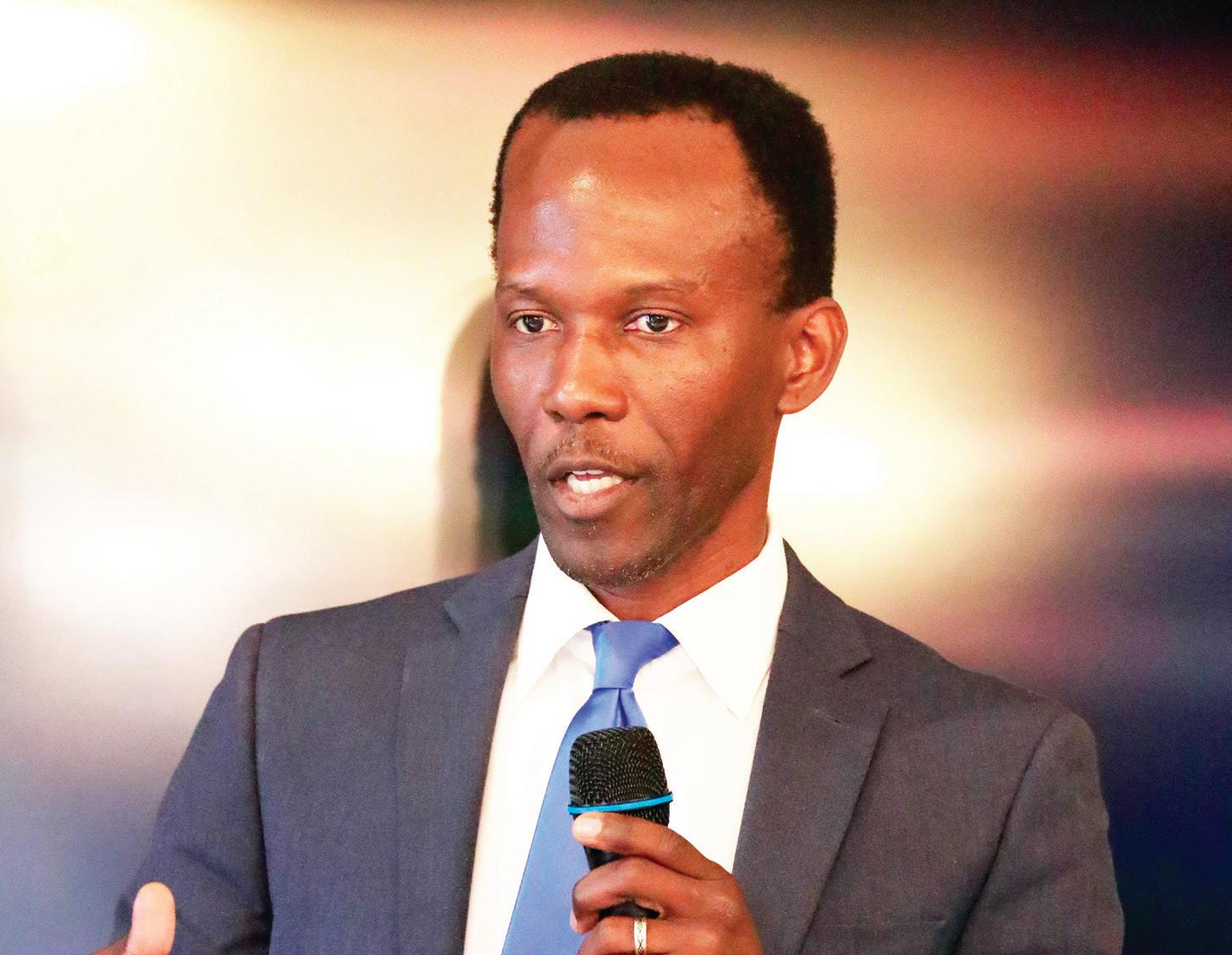
according to Census data.
The American Community Survey, which is part of the U.S. Census Bureau, puts the median household income in the district at almost $88,000 compared to the state average of $87,000, and per capita income at $42,000, compared to the state average of $47,000. 26% of those living in the district have a bachelor’s degree or higher while 38% have some college degree. About 94% have completed high school.
Less than half of its population (49%) is married and census data puts the median value of owner-occupied homes
just over $296,000 – with 72% of the 34,296 housing units in the district classified as owner-occupied. Close to 8 percent of those living in the district are below the poverty line, close to the state average of 9 percent.
Like Oundo, 10 percent of the district’s population is foreign-born. At his campaign launch, he alluded to the aspirations of many that come to America for a better life, saying his campaign “will focus on practical solutions that put families first, never losing faith in the American Dream: the belief that in this country, anything and everything is possible.”

Bundle Medicare + Medical Assistance into one simple, affordable $0 premium plan. A HealthPartners® Minnesota Senior Health Options (MSHO) (HMO SNP) plan includes valuable perks to help you as you age. Get rides to appointments and more.
Easy, guided enrollment
Call 855-394-8845 (TTY: 711) to find out if you’re eligible. Oct. 1 to March 31: 8 a.m. to 8 p.m. CT, seven days a week April 1 to Sept. 30: 8 a.m. to 8 p.m. CT, Monday through Friday
HealthPartners is a health plan that contracts with both Medicare and the Minnesota Medical Assistance (Medicaid) program to provide benefits of both programs to enrollees. Enrollment in HealthPartners depends on contract renewal. Discrimination is against the law. HealthPartners does not discriminate because of race, color, national origin, creed, religion, sexual orientation, public assistance status, marital status, age, disability or sex. 25-3491751-3630254 (8/25) © 2025 HealthPartners H2422_004970_M Accepted 8/13/25

or
TTY 711 mshosales@healthpartners.com
Ian Oundo speaks at a past event on June 5, 2025. Mshale Staff Photo by Richard Ooga
(types 1 and 2), disabilities such as Down syndrome, HIV, mental health conditions, obesity, and the use of immunosuppressive drugs.
However, the list could change. It includes pregnancy as an underlying condition, but in May, Kennedy announced that the shots aren’t recommended for healthy children and pregnant women.
When will COVID-19 vaccines be available?
In an Aug. 27 statement, Moderna announced that, with the green light from the FDA, its updated shots “are expected to be available in the coming days.”
That same day, Pfizer also announced in a press release that its new vaccines would begin shipping “immediately” and “be available in pharmacies, hospitals, and clinics across the U.S. in the coming days.”
Similarly, John C. Jacobs, the president and CEO of Novavax, said in an Aug. 27 statement that the company will begin working to provide the updated shots to “eligible individuals this fall.”
Where can I get the vaccine?
The overwhelming majority of Americans — about 90% — got their COVID-19 shot at local pharmacies such as CVS and Walgreens during last year’s cold and flu season.
But uncertainty looms over this season. That’s partly because the policies governing pharmacy regulations vary by state.
Some states follow the terms that
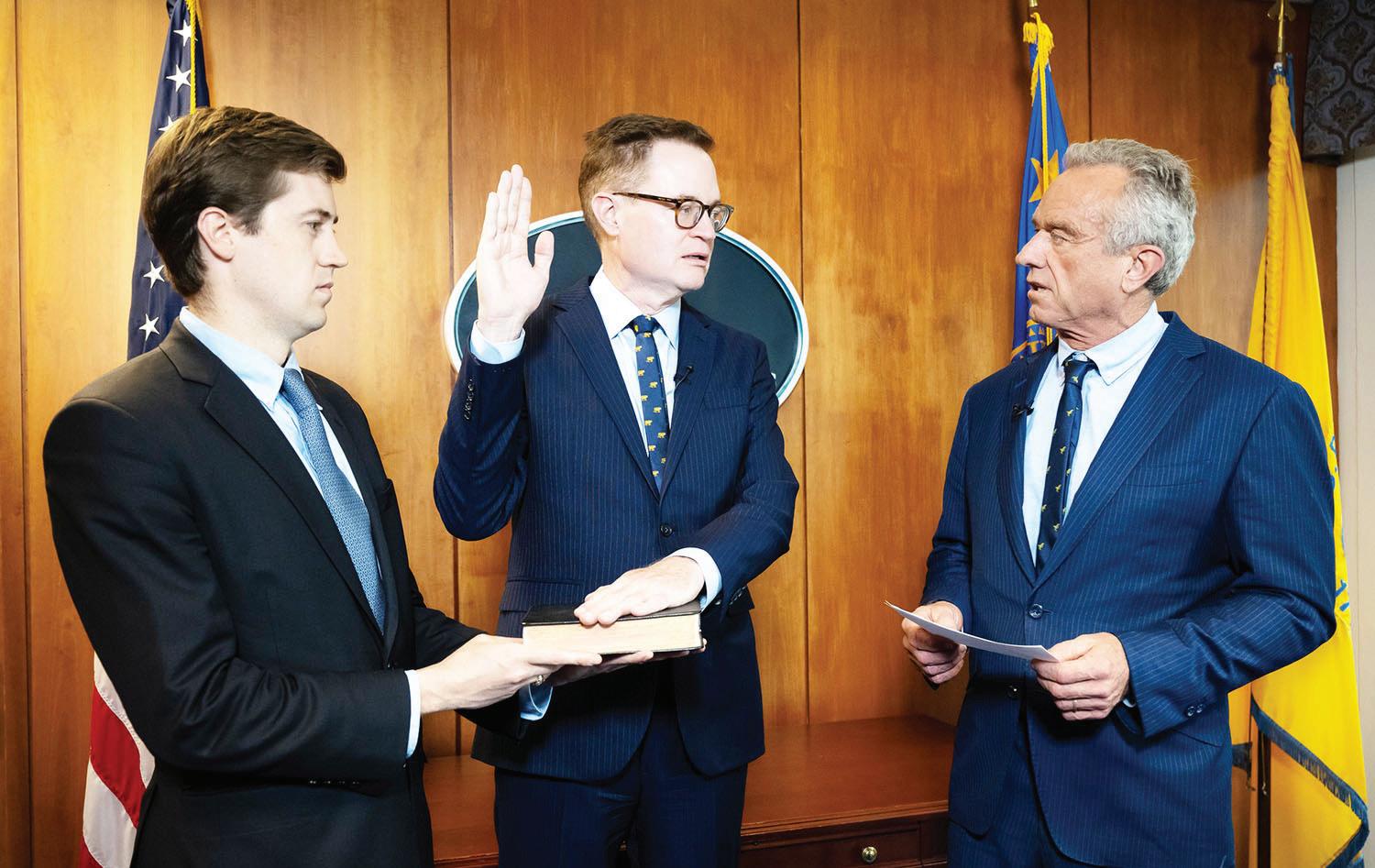
are set by the CDC’s immunization committee, while others have their own laws. Additionally, some states allow pharmacies to provide the vaccines off-label, or outside the FDA’s explicit guidelines. Because of this regulatory disarray, CVS said that it would offer the vaccines in 34 states, administer them in 13 states and the District of Columbia if people have a prescription, and not administer them at all in Massachusetts, Nevada, and New Mexico.
The states requiring a prescription are Arizona, Colorado, Florida, Georgia, Kentucky, Louisiana, Maine, New York, North Carolina, Pennsylvania,
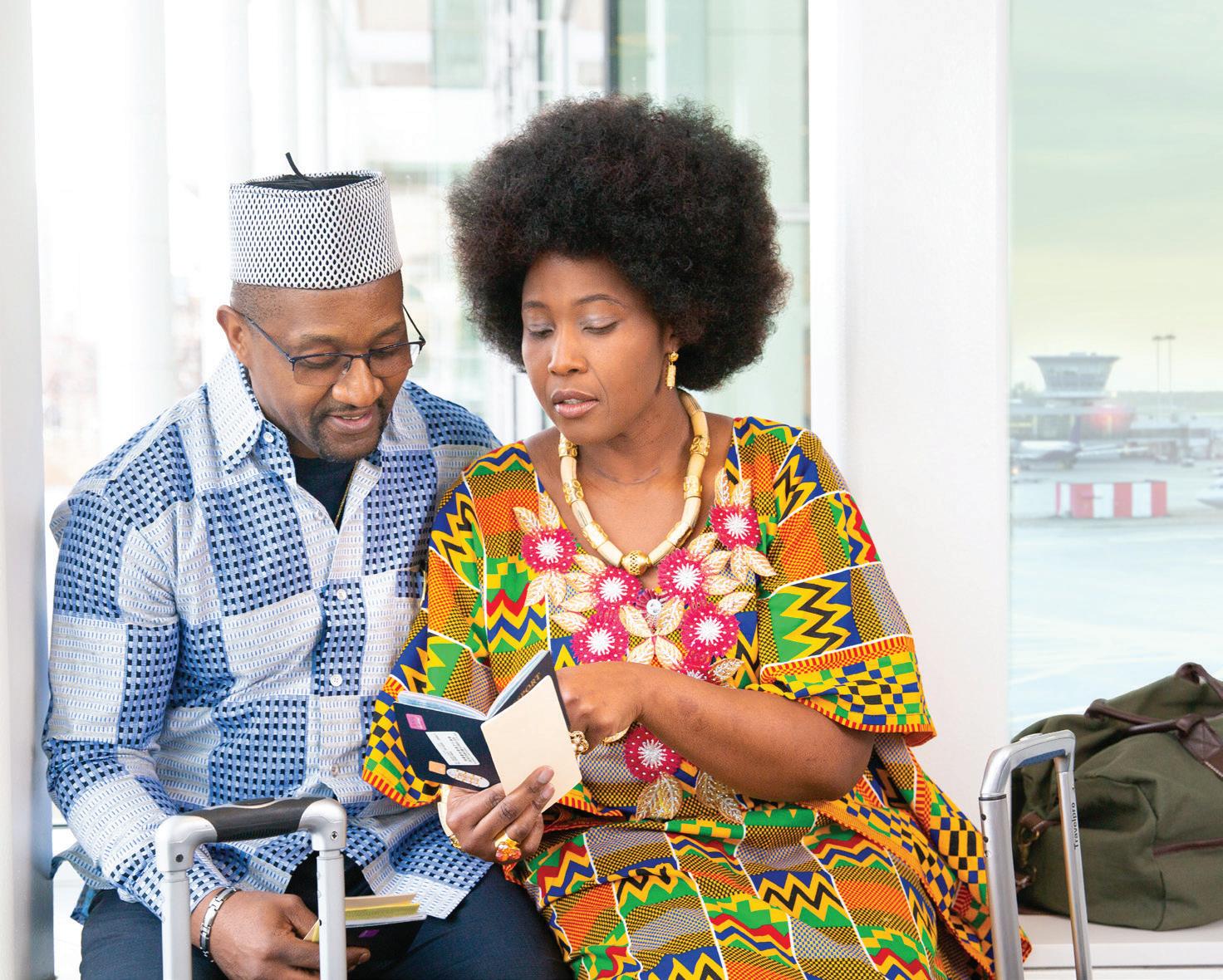
Utah, Virginia, and West Virginia.
According to The New York Times, Walgreens seems to require a prescription in Arizona, Colorado, Georgia, Indiana, Louisiana, Missouri, Montana, New Mexico, New York, Oregon, South Carolina, Utah, Virginia, Washington State, West Virginia, and Wisconsin.
Can I still get a COVID-19 vaccine if I don’t meet the new criteria?
Technically, yes. But health experts worry that the uncertainty of the regulatory environment will only create more barriers to vaccine access.
“Physicians can still provide COVID vaccines off-label, and IDSA [the Infectious Diseases Society of America] strongly urges doctors to continue recommending and administering vaccination to their patients based on the best available science,” Tina Tan, the society’s president, said in an Aug. 27 statement.
“However, pharmacists’ ability to provide off-label vaccines may be severely constrained, underscoring the vital role of physicians and other clinicians in maintaining access,” she added.

Jim O’Neill being sworn in as the Deputy Secretary of Health and Human Services by Secretary Robert F. Kennedy Jr. on June 9, 2025. On August 29, 2025, the Trump administration selected O’Neill, a former biotechnology executive, to serve as the acting director of the Centers for Disease Control and Prevention (CDC).
Photo: Courtesy of HHS Facebook
Migrants to Iowa strike different portraits where ‘American Gothic’ was created
By Yonat Shimron Religion News Service
CEDAR RAPIDS, Iowa (AP) — It was in Cedar Rapids, surrounded by cornfields, where Iowa artist Grant Wood painted “American Gothic,” the iconic 1930 portrayal of a stern-looking woman and a man with a pitchfork in front of a white frame house.
The city presents many different images today, after more than a century of international migration and faith-based resettlement efforts.
To many newcomers as well as lifelong residents, this heartland river city where migrants from present-day Lebanon built the oldest surviving mosque in the U.S. is a welcoming microcosm of America’s melting pot at a time when immigration enforcement is disrupting families and communities.
Hundreds of refugee families were resettled by The Catherine McAuley Center, founded by the Catholic Sisters of Mercy, until the nationwide halt ordered by the Trump administration this spring. At a recent class offered by the center, a Guatemalan woman and her son, along with five men from China, Benin, Togo, Sudan and Congo, sang the U.S. national anthem and rehearsed questions for the citizenship test.
“It is a matter of meshing or integrating — how do we get around in the community? How do we find our friends? How do we find bridges across cultural divides?” said Anne Dugger, the center’s director.
As Americans struggle to redefine who belongs in the social fabric, these are snapshots of heartland immigrants and their faith communities.
The story begins: Bohemians in Iowa
Bob Kazimour goes to Mass at St. Wenceslaus, where he remembers as a child the liturgy was in Latin and the homily in Czech. It’s the language of generations of his ancestors who left what was then Bohemia in Central Europe to work in Cedar Rapids’ meatpacking plants, forming the area’s first large immigrant group in the mid to late 1800s.
Kazimour can still sing a few Czech carols — and there’s a Czech choir, a Czech school and a goulash festival to commemorate. He and other parishioners whose great-
great-grandparents went to St. Wenceslaus aren’t certain new generations will keep up Czech customs. But the Catholic parish is growing again after merging with Immaculate Conception, a downtown church with a booming Latin American congregation.
“In Cedar Rapids, unlike the coasts with lots of problems, we’re Iowa nice. We get along pretty darn well,” Kazimour said.
A heartland Muslim community still grows
At the beginning of the 20th century, Lebanese Muslims came to the Midwest, often starting as itinerant merchants before establishing grocery stores. In a few decades, Cedar Rapids had dozens of these businesses — and a mosque.
Within ten months after Mohamed Mahmoud came to the United States from Sudan in 2022, he opened a halal grocery store in a strip mall a few minutes drive from the Islamic Center of Cedar Rapids, where he prays on Fridays.
“Religion is a part of life wherever you go. If you don’t find a mosque, it’s something missing,” he said in-between serving sweets at a counter with Muslim holiday decorations and American flags. “Cedar Rapids is the best option for me to live the rest of my life.”
African touches to the sweet corn festival
A few blocks from Mahmoud’s shop, the St. Jude Catholic Church’s Sweet Corn Festival was in full swing. And among the many volunteers sporting 50-year-anniversary festival T-shirts were members of the growing African congregation, mostly from Togo and Congo.
While frying funnel cakes and Snickers bars, Bienvenue D’Almeida described a journey shared by many of St. Jude’s parishioners. Wanting better educational opportunities for their children, they applied for and won the so-called green card lottery, a program for countries with low rates of emigration to the United States.
At St. Jude, the migrants found aid on arrival, and soon built French-speaking ministries, from family groups to choir to monthly French Mass.
“You feel safe, and because of that, you’ve
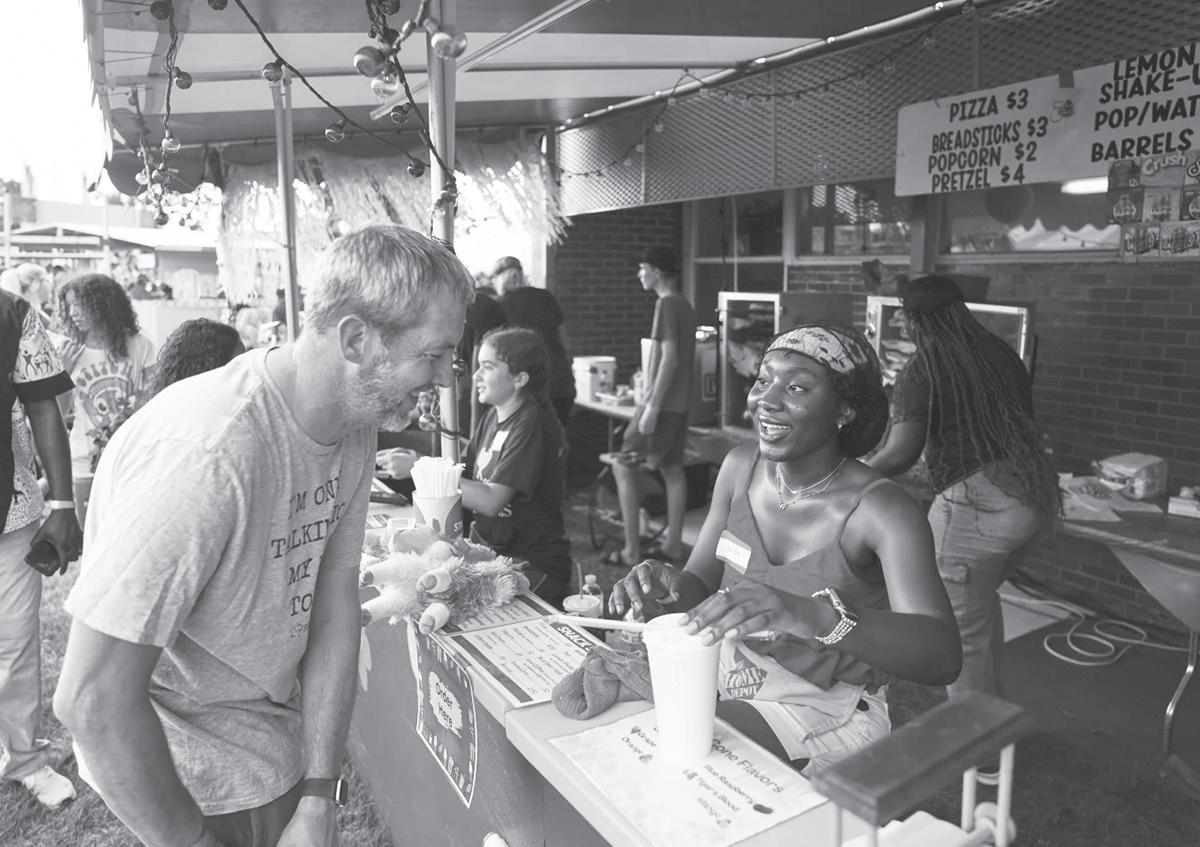
that sense of belonging,” said Roger Atchou, a father of two from Togo and festival volunteer.
“For us, St. Jude represents the United States — it’s open to everyone,” said parish council member Martin Mutombo, a Congolese volunteering with his wife, Clarisse, and five children.
“We feel very comfortable” in this adopted homeland, Clarisse Mutombo said. Nevertheless, they’re painfully aware that others in the congregation are having a harder time, including a father detained for overstaying a visa.
Methodist Sunday service in Kirundi
Another African refugee congregation gathers in the historic St. Paul’s United Methodist Church for Sunday afternoon services in Kirundi, one of Burundi’s languages.
“When I work here for God at St. Paul’s, I have a peace. I find myself home,” said the Rev. Daniel Niyonzima, through his son’s translation.
The pastor and his wife, from Burundi, arrived nearly 20 years ago after more than a decade in refugee camps in Tanzania, and were hosted by the Methodist congregation. Now they’re U.S. citizens — and grandparents.
Across the hall from the sanctuary, English classes and driver’s ed are hosted by a non-
profit started by a church member, Mugisha Gloire, a Congolese refugee who came as a child to Iowa. He remembers how warmly he was welcomed by a local volunteer who took him to swimming lessons and baseball games.
“Cedar Rapids has a long way to go to welcome everyone, but there are also some very great people,” Gloire said.
A growing flock from south of the border
A few blocks west of St. Paul’s is Immaculate Conception Catholic Church, where five children were baptized recently at the Spanishlanguage Mass that’s been held regularly for more than a dozen years.
Holding her newly christened 4-month-old nephew Gael, Gabriela Plasencia, originally from the Mexican state of Jalisco, said receiving the sacraments in Spanish allows them to “live them differently, understand more deeply.”
Being able to worship in their native language is a special blessing as the immigration crackdown casts a pall, some parishioners said. Many know people in the country illegally who have left voluntarily, and others who were arrested and deported. Everyone feels affected, said Gabriela’s father, David Plasencia.
“Inside here, we feel pretty peaceful, but the moment we go out into the streets, we all feel that anxiety,” he said.
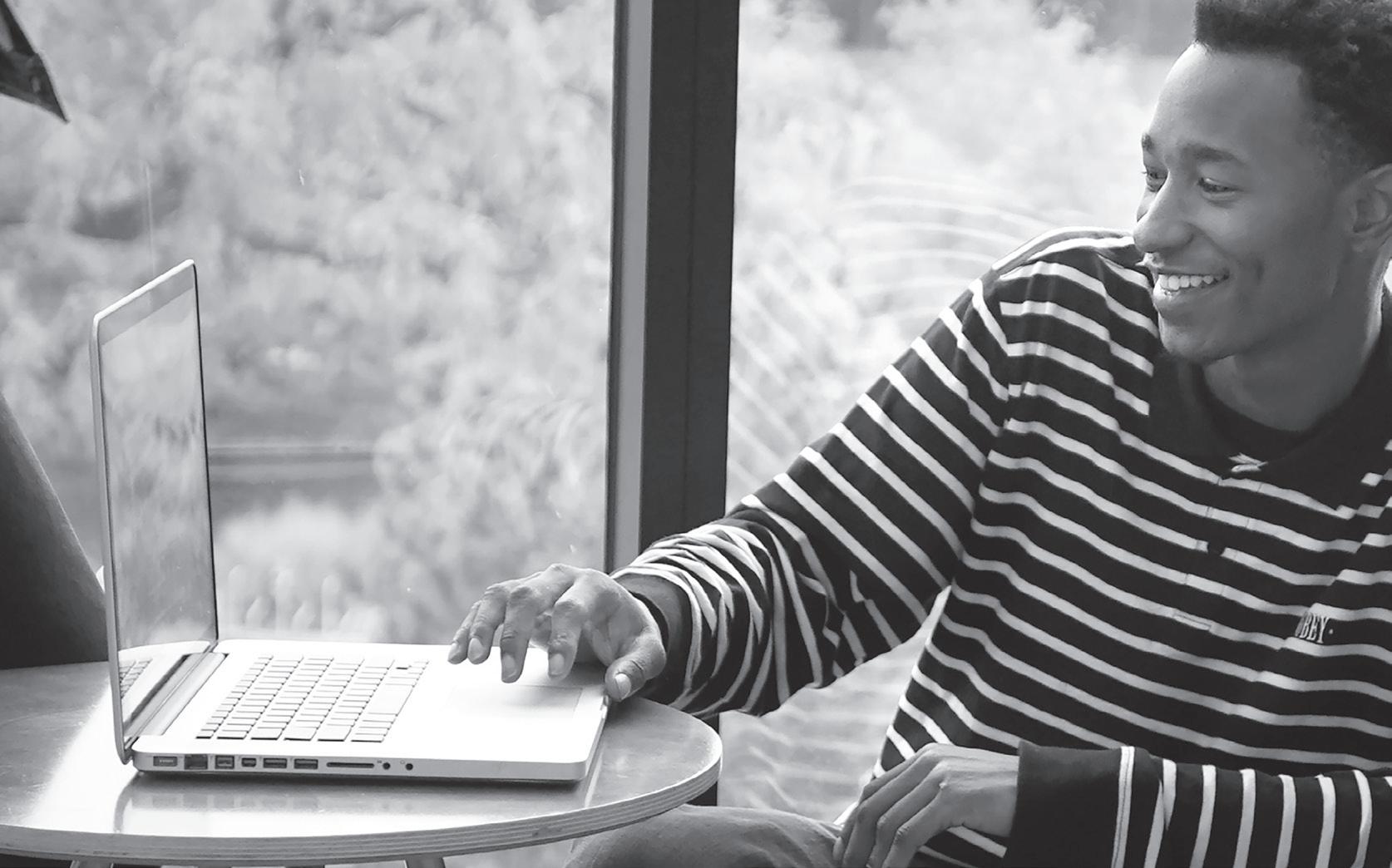
Chloe Mutombo, right, daughter of immigrant parents from Congo, volunteers at the Sweet Corn Festival in Iowa.
Photo: Jessie Wardarski/AP
Art & Entertainment
Zãr Electrik will make Minnesota debut at the Cedar this fall
By Susan Budig Mshale
Zãr Electrik will climb The Cedar Cultural Center’s stage steps September 24th and give their Minneapolis audience something new, something different, and something very needed—a musical respite from the political and cultural upheaval of current events.
Mshale sat down with two of the band’s members, Anass Zine and Didier Miosine to understand more about their origins and influences. It was an interesting bilingual conversation in both English and French.
One of the band’s first members, Moroccan-born Anass Zine said, “Our inspiration is like trance music, healing music, it comes from all of North and West Africa. There is this cultural uprooting, you know. Us, we use this name, Zãr.”
One of Egypt’s oldest dances, the Zãr, performed to elicit healing specifically of spirit possession, is practiced by Muslims, Christians and Jews, in the West African countries of Egypt, Sudan, and Ethiopia where the concept of Zãroriginated.
Zine confirmed, “Zãr is ritual from Egypt and Ethiopia, but we don’t play in Zar, you know. It’s like we take the spirit of Zãr, you know. Because in Morocco, we have the Gnawa music.”
Zine who plays guitar, oud, and gumbri in the band and kora-player Arthur Peneau met in 2019 in Marseille and began working on a first duo repertoire under the name Zãr Electrik.
During the pandemic of 2020, they met Didier Miosine and integrated him into the project as the beat-maker. Ritual and rhythm remain integral to Zãr dances, wherever they are practiced and the electronic percussive influences of Miosine were essential.
“We work in traditional music, pieces which are from gnawa music, and also a lot of pieces that we write ourselves, me, Arthur, [Didier], the three of us, compose our own music,’ said Zine.
Miosine, the third and last artist to join the trio is a master of machines, synthesizers, and electronic music codes. He described some of his work prior to joining Zar Electrik.
He said, “I’d been working on
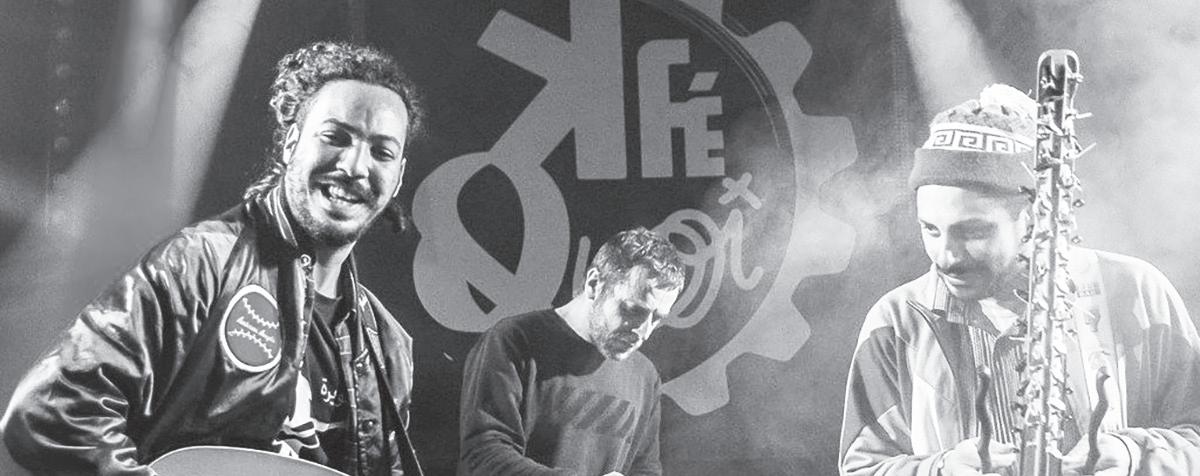
several projects for the last 20 years, I’ve been in many groups. I was working as a producer, and I was also adapting music. I worked with many singers in France, in folk music, in hip hop. My project was just electronic music. and… that’s it, voila.”
An extra treat for the Cedar audience at Zãr Electrik’s upcoming show will be Arthur Peneau’s electric kora. While there have been many excellent kora players performing on The Cedar’s stage, the koras played have all been traditionally made using a calabash gourd as the body of the instrument. Peneau’s kora, built by a man from Marseille, resembles a mashup of an
acoustic kora and a portable harp.
The show is a mashup of culture, genre, and traditional music.
Said Zine, “Zãr Electric, it’s a mix between music from North Africa, music from West Africa, and Mediterranean music, all mixed with electronic music, in the broad sense. It’s a trance, mixed with world music, electronic music from everywhere.”
It’s a mix, for real.
Tickets to the show are available on the Cedar website: thecedar.org.
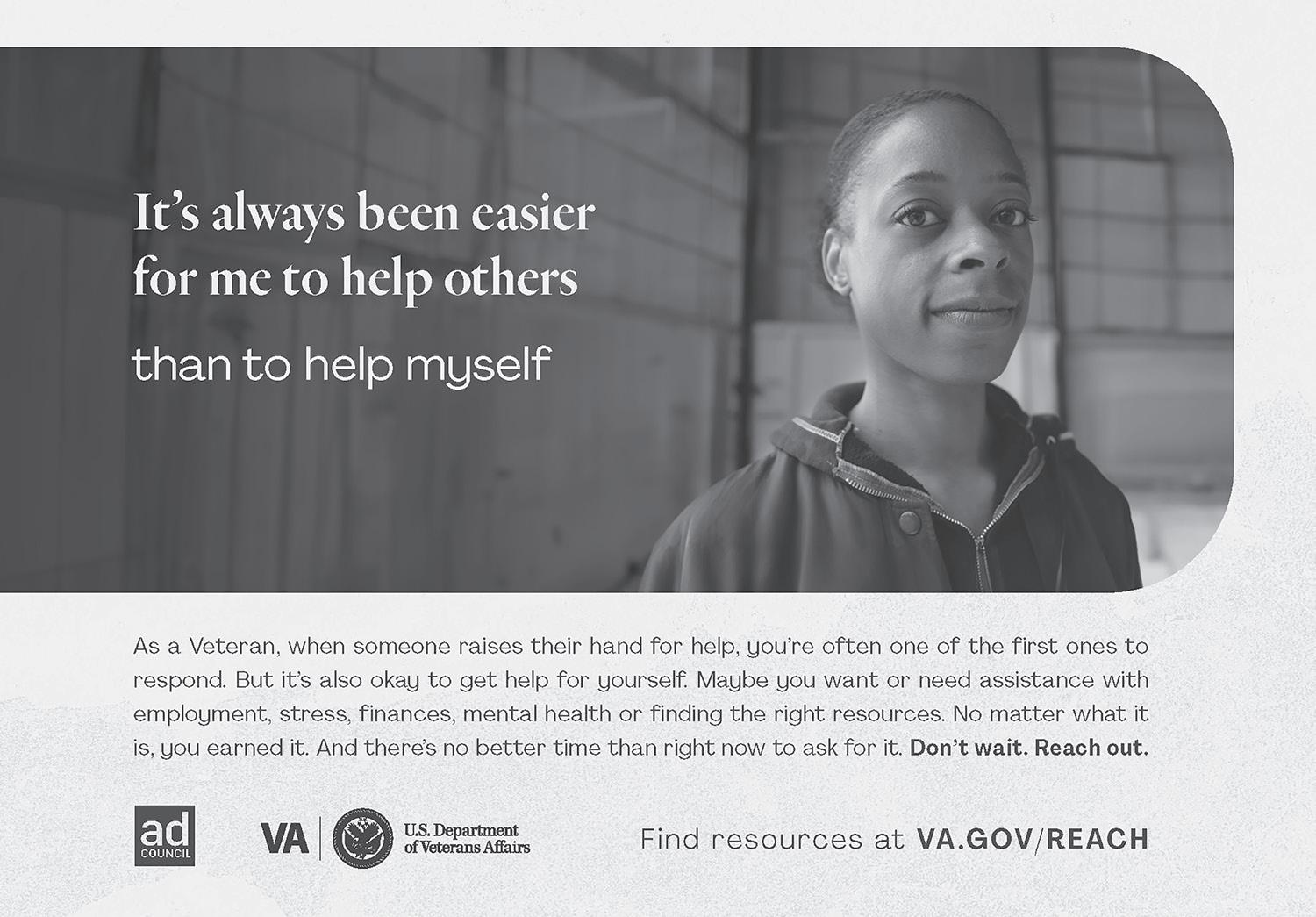
Zar Electrik, a Franco-Moroccan trio, will make their Minnesota debut at the Cedar in Minneapolis on Sept. 24, 2025. Photo: Courtesy of Zar Electrik
